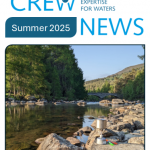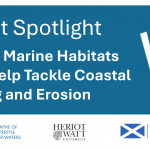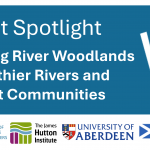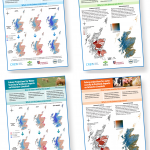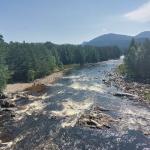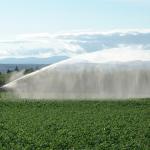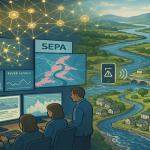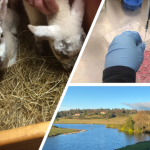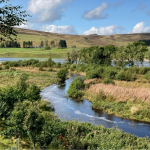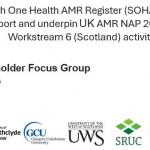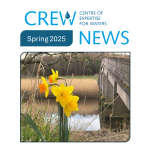Calls for proposals live - December 2022

CREW welcomes applications from Scottish Higher Education Institutes and Research Institutes on two capacity building projects:
CRW2022_03: Mitigating climate change impacts on the water quality of Scottish standing waters
CRW2022_04: Assessing the socio-economic impacts of soil degradation on Scotland's water environment
Call dates: Monday 5th December 2022 - noon Friday 27th January 2023.
Summary details are provided below.
Please follow the links to the project pages for full details.
HYDROLOGICAL EXTREMES, COASTS AND RISK MANAGEMENT
CRW2022_03: Mitigating climate change impacts on the water quality of Scottish standing waters
Type of project: Capacity building
Overview: To examine whether existing management practices are fit for purpose and sufficiently coordinated under a changing climate, or whether changes in policy, and its implementation, may be required to prioritise and steer adaptive responses for ensuring the successful mitigation of current and future climate change impacts.
Budget: up to a maximum of £125,000.
Call dates: Monday 5th December 2022 - noon Friday 27th January 2023.
Please visit the project page for full details.
LAND AND WATER RESOURCE MANAGEMENT
CRW2022_04: Assessing the socio-economic impacts of soil degradation on Scotland's water environment
Type of project: Capacity building
Overview: To develop and apply a method to assess the socio-economic-environmental impacts of soil degradation on Scotland’s land-based businesses and wider economy and society (e.g., impacts on water quality, flooding, climate, and biodiversity).
Budget: up to a maximum of £85,000.
Call dates: Monday 5th December 2022 - noon Friday 27th January 2023.
Please visit the project page for full details.
Further calls for proposals will follow in December 2022/January 2023!
Call for proposals live - November 2022
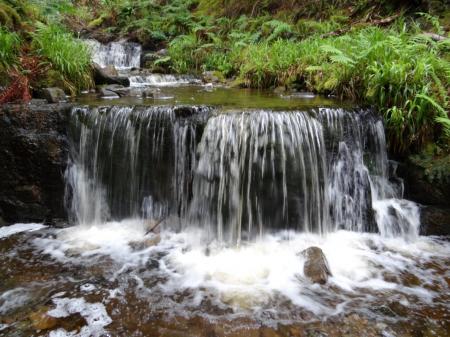
CREW welcomes applications from Scottish Higher Education Institutes and Research Institutes on two capacity building projects:
CRW2022_01: Developing risk assessment approaches for watch list parameters under the recast Drinking Water Directive
CRW2022_02: The effect of shellfish, kelp and sea grass beds on flood risk and coastal erosion in Scotland
Call dates: Monday 28th November 2022 - noon Wednesday 18th January 2023.
Summary details are provided below.
Please follow the links to the project pages for full details.
WATER QUALITY & HEALTH
CRW2022_01: Developing risk assessment approaches for watch list parameters under the recast Drinking Water Directive
Type of project: Capacity Building
Overview: To develop a risk assessment approach for recast Drinking Water Directive watch list parameters and to inform the monitoring requirements for Beta-estradiol, Nonylphenol and PFAS to validate the approach.
Budget: up to a maximum of £75,000.
Call dates: Monday 28th November 2022 - noon Wednesday 18th January 2023.
Please visit the project page for full details.
HYDROLOGICAL EXTREMES, COASTS AND RISK MANAGEMENT
CRW2022_02: The effect of shellfish, kelp and sea grass beds on flood risk and coastal erosion in Scotland
Type of project: Capacity building
Overview: To inform whether shellfish (oyster and/or blue mussel beds), kelp and sea grass should be incorporated into natural flood management in Scotland and whether (and which) existing features should be protected or restored for NFM and coastal erosion mitigation.
Budget: up to a maximum of £100,000.
Call dates: Monday 28th November 2022 - noon Wednesday 18th January 2023.
Please visit the project page for full details.
Further calls for proposals will follow in December 2022!
Partnership of researchers secure new UKRI MRC funding to tackle pharmaceutical contamination in Scotland’s waters

The occurrence of pharmaceuticals in the environment, and the risks to aquatic life are well-recognised and occurs worldwide. Pharmaceuticals are introduced to the environment by those taking prescription and 'over the counter' medicines through the excretion of residues into wastewater and when unused medicines are flushed down the toilet/sink instead of being returned to pharmacies.
This 12-month project is in partnership with the James Hutton Institute, Scottish Water, Scottish Environment Protection Agency (SEPA) and the University of Uppsala. The project builds upon knowledge gained in a recent CREW-funded project: ‘Pharmaceuticals in the Water Environment’ and CREW continue to fund impactful research on water quality and health, read more here. The project will use a novel visualisation tool developed by the One Health Breakthrough Partnership, supported by SEPA, that includes data on medicines detected in Scottish waters and NHS Highland prescribing data to generate new knowledge and to raise awareness of the environmental impact of prescribing and to develop sustainable practices that benefit the NHS, patients and Scotland’s aquatic environment.
Scottish Science Advisory Council (SSAC) internship opportunity
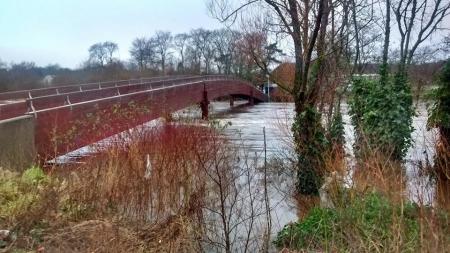
Deadline for applicants is 7th November 2022. For more information and to apply please see the document below.
CRW2022_07 Climate Crisis: informing Scotland’s actionable mitigation and adaptation response to water scarcity
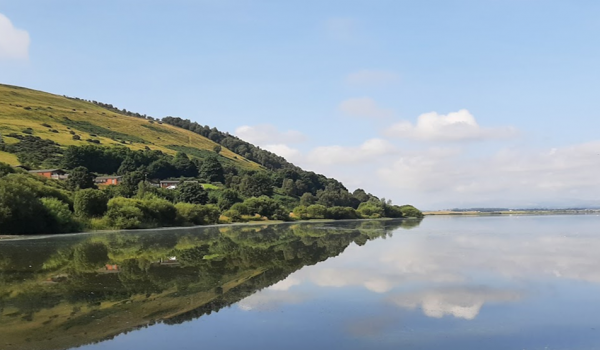
CREW Code: CRW2022_07
Theme: Hydrological Extremes, Coasts and Risk Management
Project status: Project complete. Click here to visit the publication page to view the project outputs.
Type of project: Capacity Building
Lead research team: University of Dundee
Scotland’s climate is changing at a rate unprecedented in human history. We are becoming exposed to climate related risks, such as water scarcity, that were not considered significant in the past and have not been planned for. The first phase in addressing this shift in risk has been to develop early warning and emergency measures to mitigate the impacts of exceptional events such as the 2018 European drought and its impact in Scotland. However, as we better understand the projected increasing severity and frequency of dry periods and our potential future demands on water supply, an adaptation gap has become evident that risks the security of what has, up until now, been seen as a dependable, high-quality water supply.
In this project the research team review past, present and future changes in water scarcity risk in Scotland. Through engagement with a broad spectrum of stakeholders in the water sector and government agencies the research team asked the questions: 1) What is currently being done to reduce the likelihood and severity of water scarcity? 2) How effective are these strategies now and will they still work under a changing climate future? 3) What additional actions do we need to take to address water scarcity in the future?
In answering these questions, the research team highlight the current challenges in addressing the water scarcity risk and provide recommendations on how to address them. These recommendations are presented as programme of work over the short and long term. To take it forward, the research team propose a governance structure formed of representatives from the relevant agencies and in partnership with businesses and communities. The programme is a prioritised set of recommended actions that would contribute to the delivery of a system of national water resource planning, supported by improved levels of water stewardship from across society. The planning will be informed by better access to water supply and demand information and a programme of research that addresses the evidence gaps and improves knowledge exchange across the water sector.
This project has completed. Click here to visit the publication page to view the project outputs.
CRW2022_02 The effect of shellfish, kelp and sea grass beds on flood risk and coastal erosion in Scotland
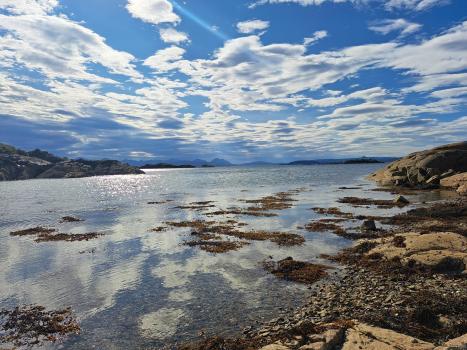
CREW Code: CRW2022_02
Theme: Hydrological Extremes, Coasts and Risk Management
Project status: Project complete. Click here to visit the publication page to view the project outputs.
Type of project: Capacity building
Lead research team: Heriot-Watt University
Coastal flooding and erosion are increasing problems around the Scottish coastline resulting from climatic changes such as increased storm frequency and intensity, as well as rising sea levels. These pose risks to human life, infrastructure and properties, with negative consequences for the national economy. Besides ecosystem services such as habitat for threatened and commercial species, fisheries production, nutrient cycling, sediment stabilisation, water purification and carbon storage, marine vegetation canopies and shellfish habitats can dampen waves and currents, with the possibility of reducing risk of coastal flooding and erosion. However, there is a lack of consolidated information relating to the distribution and extent of such habitats at a national scale. In addition, evaluation of the potential for NFM by these habitats in a Scottish context has not been done. The project set out to address these knowledge gaps by focusing on 4 key habitats: kelp forests; seagrass beds; oyster reefs; and blue mussel beds.
The project aimed to evaluate how well selected shallow marine habitats (specifically kelp forests, seagrass beds, oyster reefs and blue mussel beds) protect the Scottish coastline from erosion and flooding. Consequently, a secondary aim was to assess the need and feasibility for protection and/or restoration of these habitats in relation to their potential role in Natural Flood Management (NFM) and erosion control. The following research tasks were undertaken:
1. Gathering and standardising available information on the location and extent around Scotland’s coast of the 4 habitats.
2. Predicting the reduction of waves and wave run-up by the 4 habitats using recently developed computer simulations.
3. Applying these predictions to specific Scottish locations to assess the degree of flood and erosion control by these habitats.
4. Acquiring information from stakeholders through a workshop to inform the project direction.
5. Assessing the effects of harvesting on the 4 habitats.
6. Assessing the potential for coastal protection through restoration of the 4 habitats.
This project has completed. Click here to visit the publication page to view the project outputs.
CRW2022_04 Assessing the socio-economic impacts of soil degradation on Scotland's water environment
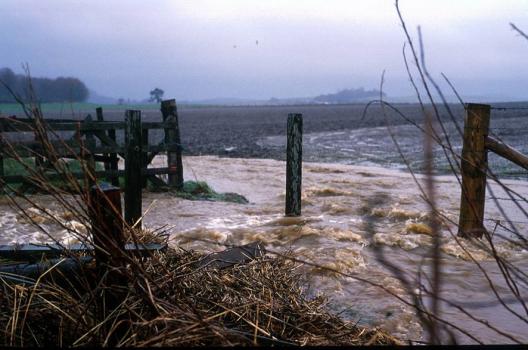
CREW Code: CRW2022_04
Theme: Land and Water Resouce Management
Project status: This project has completed. Click here to visit the publication page to view the project outputs.
Type of project: Capacity building
Scotland’s various policies to protect its soils from degradation create economic benefits. In this project the economic costs of soil degradation in Scotland were estimated. Using the best available data the impacts of soil compaction, sealing and contamination were assessed. The extent of these degradation processes was then used to calculate the costs across Scotland. Compacted soils can cost farmers £15 to £209 per ha in extra fuel use. The annual combined impact on crop yields and fuel use across Scotland is likely to cost between £25 million and £75 million. The compaction of soils and sealing by infrastructure could lead to a 1% increase in flooding, with insurance claims of between £57,000 and £76,000 per property flood event. Soil compaction can exacerbate erosion and increase previous estimates of erosion costs. Soil degradation also arises from contamination and the loss of biodiversity, but these are difficult to estimate. Given large costs of soil degradation annually, policies to protect this natural resource will benefit Scotland’s economy. The project team only costed direct impacts, using the available data that was often limited. The indirect costs on pollution, human health, supply chains and greenhouse gas emissions will be much greater, and additional monitoring is required to assess these effectively.
Lead research team: James Hutton Institute
This project has completed. Visit the publication page here to view the project outputs.
Our Hydrological Extremes, Coasts and Risk Management theme aims to improve the understanding of climate-water interactions from source to sea.
Our research supports key policies, including Scotland’s Climate Change Plan and the Flood Risk Management Act.
CREW's Hydrological Extremes, Coasts and Risk Management theme focusses on providing high quality science knowledge regarding:
- Nature based solutions
- Resilience and adaption to climate change
- Hydrological extremes: flooding and water scarcity
The projects undertaken within this theme support policy and regulation areas including:
- Scottish National Adaptation Plan (SNAP3) - Water scarcity
- Climate Change Plan for Scotland, UK Climate Change: risk assessment & adaptation
- Flood Risk Management Act
- Flood Resilience Strategy
- Scottish Biodiversity Strategy
- National coastal change assessments inc. erosion management
Recent research published within this thematic area includes:
- Climate Crisis: informing Scotland’s actionable mitigation and adaptation response to water scarcity - the research team reviewed past, present and future changes in water scarcity risk in Scotland, highlighting the current challenges in addressing the water scarcity risk and provide recommendations on how to address them.
- Methodologies for sampling fish populations in Scottish freshwater lochs - the project assessed the currently available methodologies for sampling fish populations in Scottish freshwater lochs. Acknowledging the complexity and longstanding challenges with fish monitoring in standing freshwaters, the project team produced guidelines which support the development of suitable fish assessment programmes.
- Increasing flood resilience: residential and community runoff retention solutions – the project team carried out a literature review, case studies and a cost-benefit analysis to evaluate and compare the cost and effectiveness of residential and community property rainwater runoff source control solutions to increase flood resilience.
- 2022 - Effective future communication of flood risk in Scotland - this project explored how to improve flood risk communication in Scotland, highlighting the need for audience-specific approaches. It emphasised clear messaging, community involvement, and actionable guidance to enhance resilience and avoid maladaptive responses.
- 2020 - Impacts of Flooding in North-east Scotland - in response to severe flooding in the winter of 2015/16, CREW commissioned research in Ballater and Garioch to understand long-term flood impacts and improve recovery support. The project team informed strategies for enhancing flood-risk management and strengthening community resilience.
- 2019 - Quantifying rates of urban creep in Scotland - this project mapped urban creep in Edinburgh from 1990 to 2015, revealing an annual loss of 6.44ha of vegetated land. Findings provide Scotland’s first city-wide estimates, highlighting impacts on surface water flood risk.
CRW2022_06 Emerging Contaminants: Informing Scotland’s strategic monitoring and policy approaches on substances of increasing concern
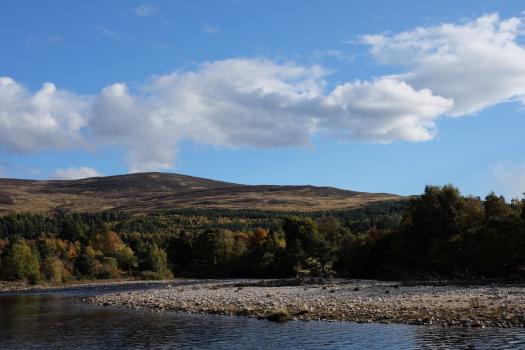
CREW code: CRW2022_06
Theme: Water Quality & Health
Type of project: Capacity Building
Project status: This project has been completed.
Please view project publication page here.
The aim of this project was to inform, prioritise, and coordinate actionable monitoring and policy-based approaches to identify, assess, and mitigate risks from substances of increasing concern to Scotland’s water environment. Contaminants of increasing concern (CICs) comprise a diverse range of substances and organisms, including chemical groups such as pharmaceuticals and pesticides; biological contaminants such as pathogens and antimicrobial-resistant (AMR) genes; nanomaterials; and microplastics. CICs include compounds and organisms that are ‘new’ or increasing in presence in the environment or compounds or organisms already known to be present for which new information becomes available, e.g. on pathways or toxicities. Substances and groups considered CICs therefore evolve over time, due to new insights or new patterns of use.
Using a Substance Mapping approach, including literature review, an expert survey and a knowledge sharing workshop, the team found that based on evidence encountered, no CIC groups can be discounted for Scotland and significant data gaps exist on sources, pathways, exposure routes, hazard and risk. Many national and international databases are however available and could be consolidated for Scotland. The research team further recommended partnership working, an international review of policy options, and expansion of research capacity to further refine and fill the knowledge gaps.
CRW2022_01 Developing risk assessment approaches for PFAS and watch list parameters under the recast Drinking Water Directive
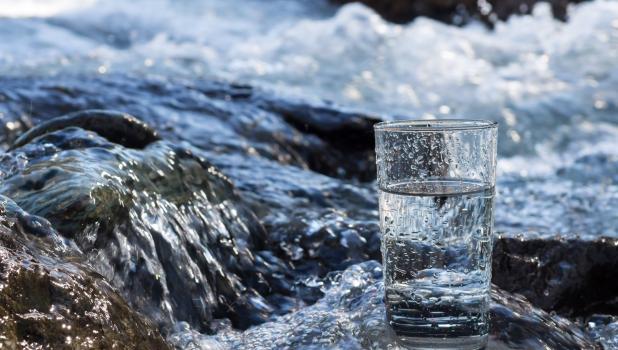
CREW Code: CRW2022_01
Theme: Water Quality & Health
Project status: Complete. Please click here to visit the publication page to view the project outputs.
Type of project: Capacity Building
The research project conducted assessments of the potential presence of per- and polyfluoroalkyl substances (PFAS), 17β-estradiol, and nonylphenol for drinking water supply sources in Scotland, to identify high risk areas and enable prioritisation of monitoring and additional knowledge generation.
PFAS, a class of synthetic chemicals produced since the 1940s, are persistent, toxic and bioaccumulative and have been linked to detrimental impacts on childhood development, cancers, and immune system disorders. Nonylphenol and 17β-estradiol are endocrine-disrupting chemicals connected to cancer, reduced fertility and obesity. Due to increasing awareness of the potential occurrence of these substances in the environment, a new standard for PFAS was introduced for Scottish drinking water in January 2023, and Scottish Water commenced a nationwide risk based sampling programme at that time. 17β-estradiol and nonylphenol were added to an EU drinking water watchlist, so Scottish Water will need to monitor for their presence in their supplies when the watch list is adopted in Scotland.
The research project estimated which supplies had the highest potential likelihood of detecting the substances in the raw (pre-treated) water. The assessments identified higher likelihood of PFAS and nonylphenol presence in those areas with higher population and industry densities (predominantly the central belt and east of Scotland), whereas areas with the highest likelihood of 17β-estradiol presence were those under more intensive agricultural use (predominantly the northeast and south of Scotland). Having identified these areas now allows further refinement of monitoring programmes to aid our understanding of the potential presence of the substances, their sources and possible treatment requirements. This in turn will inform best strategies and actions to reduce concentrations of the contaminants if necessary, not only in drinking water, but also in the envrionment.
Lead research team: University of Dundee
The project has completed. Please click here to visit the publication page to view the project outputs.


